- Home
- Sarah Hall
The Beautiful Indifference Page 8
The Beautiful Indifference Read online
Page 8
She continued on. She replayed the argument in her head, accurately or inaccurately; it did not matter. By the end of the conversation a reptilian dullness had crept into his eyes. It was as if he was persuading himself of his own point of view, of mutual failure.
I used to think you were strange and amazing, he had said. But I wonder how much we have in common. We seem to want different things. Why are we here?
She had stopped crying now, and did not feel sick with panic any more. She felt tender and very alert, as if having risen from a fever, as if driving a new body. There was the reek of kelp all about. Though she was profoundly alone, she felt self-conscious. Observed. To her left, at the top of the rise, the jungle was greenish-brown, oily and complicated, immune to the salt air. It was like a mouth, or many mouths, spitting out the sand that it was relentlessly fed. Now that she was looking up at it, the entity seemed superior to the ocean. The uppermost branches shifted and rustled. Nothing flew above. Nothing flitted in or out. Everything inside was hidden. What was he doing back in their room, she wondered. Repacking his bag, perhaps? Reading a book? Or maybe he was asleep; oblivious to everything, making use of that shut-off mechanism men could rely upon in such situations.
She walked on. The ocean wind was strong. Grains of airborne sand stung her arms and face. Her dress fluttered. Perhaps he was right. Perhaps they were not in step. Why had she wanted to come here, to a place like this, with its memory of recent troubles? Sub-Saharan gothic, he had joked, a busman’s holiday. He had booked two weeks off work, which meant handing an important case over to a colleague. They had flown into Johannesburg, visited a few game parks, photographed giraffe and zebra, then come north. They had arrived at midday and the staff had been friendly. The receptionist had kissed them both three times. They had lain on towels and applied sun-lotion, and had eaten lunch in a cafe in town. They had talked about going up to the ruined lighthouse on the highest dune to see the sunset. But the sense of this being a holiday was somehow absent. There were still signs of the war – abandoned farms, ruins. Now, separate from him, any meaningful frame for being here was gone. She was anomic. The sand was difficult to tread. Her ankle kept turning. She began to feel foolish.
After a while she turned and looked behind again. There was a white form a few hundred metres back down the beach, where the path to the lodge began. His white linen shirt. Briefly, a sense of elation possessed her. He was looking for her, which meant he was worried. It meant a reversal, perhaps. Should she wait for him or walk on and let him make up the distance? Should she make it easy? She lingered a moment. No. This was his doing. He had instigated their division. He would have to catch up with her. She turned and walked on, not with haste, but purposefully, her steps widening over the dry reefs, the flats of her sandals slapping the soles of her feet. Crabs scattered towards the water. She went about thirty paces. Then she slowed. Perhaps he would not see her so far away. Her dress was pale; she might be indistinguishable against the sand. And she did want to be seen, didn’t she? She paused, looked behind again. The white shape was in the same position, perhaps a little closer. She squinted. The surf was creating an illusory fog; the light was thickening. It was difficult to gain focus. She bridged her hands over her eyes.
The shape was low to the ground, and was not particularly large, not elongated like a man. It was not him. Her disappointment was simply confirmation. She knew he would not come. Still, she was annoyed to have hoped, to have permitted the minor fantasy. The white object was not large, but it was too big to be a seabird. Something mid-sized, then. It was definitely moving; it had velocity, a gait, but she could not tell in which direction it was heading, towards her or away. She peered along the corridor of sand. Towards her. It was coming towards her. She could make out a rocking motion, forwards and backwards, side to side. A creature loping, or running. A spark of alarm fired across her chest. Suddenly there was no air to breathe, though the beach was a cathedral of air. She stood still, lifted a hand to her mouth. A creature running towards her. A creature running towards her. She couldn’t move, couldn’t make a clear assessment.
There were many dangers here; all outlined in the literature she had received from her health centre. Since arriving on the continent she had retained a prudent fear of the environment. The disease. The bacteria. The wildlife. Not all of it could be washed away, contained, or immunised against. On the way to one of the game parks they had passed an iron-roofed clinic. Outside there had been a long queue of patients. A white doctor was leaning against the clinic wall taking enormous rushed bites out of a sandwich. On the road to the border the traffic had suddenly stopped. After a minute or two the cars ahead had pulled away and driven on, cautiously. A rhino was on the carriageway. It was grazing un-spectacularly on the verge as they crawled past. Its plated torso was earth-coloured. Its eye was a tiny dark recess. Twenty miles later they had passed a woman in the middle of the road, waving her arms up and down. Then they’d seen the body, splayed, folded over itself, made boneless by the impact. A young man, walking to work, perhaps. The debris of his briefcase lay in the oncoming lane.
It was everywhere, close to the surface, or rupturing through.
She turned and walked on, quicker than before. She lengthened her stride. Whatever was behind her might simply have strayed onto the beach, and would cut up into the brush again, leaving her alone. If it was following without motive, or through curiosity, she could probably make it to the headland pass before it came too close. Just walk, she thought. Walk. Don’t run.
The drifts were hard going. The dry crust seemed to support her whole weight for a moment then became slack and collapsed and her heels submerged. Sand worked its way between her toes. She walked closer to the shoreline, where the ground was firmer and less abrasive, but still her feet seemed poorly designed for the task. They were narrow, hoof-like. Her shins ached. The glow on the other side of the trees was fading. Soon even the dusk light would be extinguished. There were no long twilights like at home. Here the shift came swiftly. She walked on. The crabs scuttled away as she approached, or circled about her feet, their claws held aloft. She did not want to look behind again. Nor did she want to imagine what was there. The latter option was worse. The dress she was wearing was low-backed. Her flesh felt exposed. She was all meat, all scent. Had whatever it was gained? Had it materialised properly? A thing born from the jungle: acute and mindless in its predation, glistening-jawed. Her nails dug into her palms as she paced. It might be a breath away from her. Or it might be gone. Turn, she thought. Turn now.
She stopped and turned and the white shape was coming faster, on all fours. A clean bolt of panic struck against her sternum. She wheeled round. Not far ahead volcanic cliffs rose and an uneven stage of rocks began. She began to run; heavy, stumbling steps. It would be the only way she could make the headland, so she could clamber up to a higher, safer place. But it was like running in a dream. The turgid ground, the dreadful incapacity. She pulled herself forward. She fought the sand. Her thighs burnt, began to seize. Stop, she thought. You have to stop. Showing fear means accepting you are prey. She stopped. She turned and looked back.
It was a dog. A big white dog was coming after her; paws skimming the sand, head held low. It was tracking her. It was engaged in the act, but not at full speed, not in pursuit. She drew herself in, filled her lungs. OK. A dog. A dog was not the worst possibility, even if wild. She’d had the shots, painfully and expensively in the upper arm, there was still a hard lump under the surface, as if a coin had been inserted. And she could recall no reports in the news of tourists set upon and killed by dogs; such a thing must be uncommon. It was war or malaria or road accidents that spawned tragedy. Though she could recall now, luridly, and out of nowhere, the face of that little girl from the north-east, from Sunderland, who had been mauled by the family bull terrier earlier in the year. She could recall her face and neck in the photographs: a grotesque map of welts, flaps and bruises, crescents of black stitches. Then the later pictures: h
er skull bone grafted over, her nose rebuilt, less striking, surgical disfigurements.
She put her shoulders back, stood her ground, waited for the thing to catch up. When it was within close range the dog lifted its head and veered to the side, then came into line with her, higher up on the ramp of sand. It stopped. The dog looked down at her. Its eyes were dark, bright. Big paws. It was part Labrador, perhaps, blunt-headed, its fur dirty. There was no collar. Its tongue spooned from its jaw. It looked at her. Its eyes were very, very bright. Under the muddy coat was a distended belly and long black teats. It did not appear emaciated.
She was not usually afraid of dogs. She had had a dog as a child.
Come here, she said. Come. Come here.
The dog dropped its head and came and stood next to her, its warm body pressing against her leg. She put out a hand and let it sniff between her fingers, then she stroked its head, carefully. The fur was damp and gummy. There were lumps on the ears. A stray. But it had once been tame, and it was still tame. Not wild. Not rabid. Biddable. The relief was like stepping into a warm bath. Something within her let go. Her muscles relaxed. She began crying again, though gently, not as she had after the fight. The dog nudged her hand with its head. She petted the dog with the tips of her fingers, combing the sticky fur. It continued to lean warmly against her leg. After a minute she wiped her eyes and walked on again. The dog held back for a moment then followed and fell in beside her.
You gave me a scare, she said. Listen, I’m not going to keep you.
She continued down the beach with the dog as her companion. She walked slowly. Now and then the dog brushed past and went ahead, then came back to her side. A couple of times it chased after crabs, bounding towards them, knocking clods of wet sand up with its paws and snapping at the angry, fencing creatures. Then it came to her side again, as if demonstrating obedience.
You know where you’re going? she asked. Well, you seem to.
She watched the dog. It was nice to watch. It moved deliberately, in accordance with its proclivities. It sniffed seaweed and chased crabs. Then it wanted to be at her side. For no real reason its presence made her feel better. At the headland rocks they both paused and then picked their way along the puddled outcrop. There were pools the shape of hexagons, strange geological structures. At the edge of the headland the ocean washed over them. As they began to round the cliff, the jungle disappeared from sight. The dog stepped through the shallower pools. It lapped some of the water.
Hey, don’t drink that.
She thought perhaps the dog would not come up the cliff path but as she began the ascent it followed, bounding up off its back legs onto the boulders. It squeezed past her where the path was almost too narrow for them both, then wanted to lead. The dog trotted ahead confidently, piloting. Perhaps it belonged to someone in the town, she thought, and had just ranged out. In places she had to bend and scrape through bushes. She brushed her shoulders down afterwards, shook out her dress. The rock was volcanic, sculpted into minuscule peaks. Not far below the ocean hawked in and out of eroded gullies. With the sun off it, the water was no longer the intense blue, but colourless.
It took five minutes to round the headland, and then the settlement came into view, the green-roofed cabins on stilts, thatched huts, the seafood bar, and the little blue Portuguese church with its naive Madonna painted on the gable, her figure and head undulating like an expressionist portrait. There were steps carved into the rocks. She walked down them with the dog and walked along the bay to the launching stage, past a few fishermen who nodded at her, and when she arrived at the edge of the town she stopped.
OK. Go home, she said to the dog. Go on.
The dog sat and faced her. Its teats hung from its black belly. Its claws were long and curved and the webs between looked sore. It cocked its head and looked as if it did not understand the command, or as if she might issue another, preferable instruction. In the failing light its eyes were huge. She made her tone firmer.
Go home. Go. Home.
She clapped her hands in front of its face. The dog got to its feet but did not move. She turned her back and walked away. She glanced back. The dog was not following. It was standing in the same spot on the beach, its ears knuckled upwards, watching her. She continued to walk. When she looked back properly the dog was trotting down to the edge of the water, chasing crabs again.
She did not really know what she was doing, coming into the town. Acting out of anger, but her anger had ebbed now. Though she knew it was relatively safe – Breck, the driver, had vouched for that – she was nervous. She did not want to go back yet. She could not bear the idea of taking up where they had left off. She could not bear seeing him in an altered state, unmoved by her, his eyes blank. She wanted to sit and have a drink, sit and think. She had to get her mind round the situation, had to assimilate it. She’d probably be able to get a ride back to the lodge complex later; locals seemed amenable to casual work. Or she could walk back along the beach. It would be a clear night by the look of the sky. Let him wonder where she had gone. Let him think about things too, what it was he had said, or tried to say, what it was he might be giving up. He was as trapped here as she was, at least until tomorrow when the Land Rover could be booked. If there was a lover he had not yet admitted to – and she had asked, she had demanded to know – he would not be able to reach her by phone to say, yes, he had begun to break things off. No more than she could reach a friend, or member of her family, to be consoled.
She still did not really understand what was going on. He had said nothing about feeling unhappy previously. Why had she asked him, again and again, what was wrong, instead of taking a nap with him on the bed before dinner? Had her asking created a situation that would not otherwise have existed? If she had not asked him, if she had rested her cheek on his back and her hand on his stomach, and had slept for an hour against his side, would the argument never have taken place? Would they still be together? They had had sex that morning, in a different bed, in a game lodge further south. The sex had been good; he had initiated it, and when she had taken him into her mouth he had said her name with surprise, as if at a loss, as if helpless, and he had been desperate to be inside her and they had both moved well, automatically, uniformly, and when she had come he had too. He had seemed moved, looking down at her. Did he know then that later in the day he would be saying such damaging things?
What about this morning, she had said during the argument. You felt something for me then, didn’t you?
Yes, he said, something. But that’s unfair. It’s different. Sex is not rational.
They had bickered on the drive up, about nothing important, when to make a rest-stop, whether to buy more bottled water. They had disagreed about whether tourism was a good or bad thing for countries such as this. But the true argument had seemingly come out of nowhere. As if with her arch invitation to speak his mind, she had conjured from a void the means to destroy everything. As if he had suddenly decided it could end. Like deciding he wanted her phone number. Like deciding to get a spare door key cut for her. How easily inverted the world could be. How dual it was.
She made her way along the dirt road towards the cafe. Lights outside the bars were coming on. The evening was still warm. People were sitting drinking beer on the concrete groyne. Three surfers were loading their boards into rusting pick-up trucks. There were locals still trying to sell cashews and carvings. The last of the vendors watched her as she passed by but did not approach. Earlier that day they had made good pitches to them both as they lay on towels reading.
Buy these nuts; they are delicious. Just try one for free and then decide.
Perhaps they could witness the recent distress in her, like looking at a dishevelled tract of land a storm has lately passed through. She walked past the oil drum where the handless man had been sitting. She went into the cafe that they had been in earlier, feeling safer for the vague familiarity. She sat at an empty table and the same waiter approached her, a young man, in his twenties, w
earing a yellow and green T-shirt.
Hello again.
Hello.
He greeted her pleasantly, but she could see that he was confused. He kept looking at the door. This was not a resort, if it could yet be called a resort – locked in by sand roads, and visited by only a few dozen tourists a week – where a woman would drink alone. She had three hundred rand in the pocket of her dress. She ordered a beer. The waiter nodded and went to the refrigerator and brought one over. He set it down on the table with great care, positioning a glass next to the bottle. She thanked him.
Obrigada.
And to eat?
She shook her head. He nodded and withdrew.
She sipped the beer. She thought about him, and what her life might be like without him. They lived in the same city and saw each other regularly, socialised with each other’s friends. Most nights they spent together. They had taken a few trips. This was the most exotic – a twelve-hour flight, prophylaxis and rehydration tablets. They had been getting along fine, she thought. She tried to find any recent tells. Perhaps he had been moody these past few weeks, a little in-different, stressed at work. He had been curt with her when she said, again, that she wanted to change jobs, that the tours were not what she really wanted to do. But nothing had seemed worrying. She was thirty-one. The thought of going back out, on dates, to parties and clubs, looking for someone, having to generate that intellectual and sexual optimism, made her feel tired. She remembered their first night together. He had taken her for a walk in the park by his house, and out for dinner. They had undressed in the living room of his cold flat and had moved to the bedroom only when his flatmate’s door had opened. They had barely slept. They were astonished by each other. The next day they had eaten a late breakfast, gone to the cinema, and come back to the flat to collect her necklace. They had had sex again, better, quick and inconsiderate, her underwear taken off, her skirt left on, and then she had gone to work. She had felt extreme happiness. There had been nothing to lose.

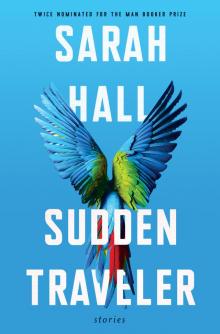 Sudden Traveler
Sudden Traveler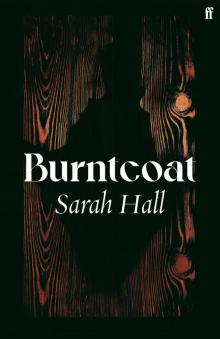 Burntcoat
Burntcoat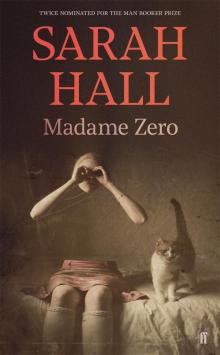 Madame Zero
Madame Zero Mrs Fox
Mrs Fox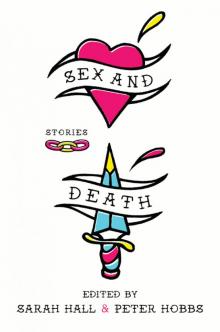 Sex and Death
Sex and Death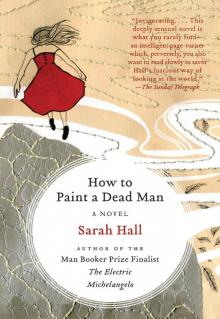 How to Paint a Dead Man
How to Paint a Dead Man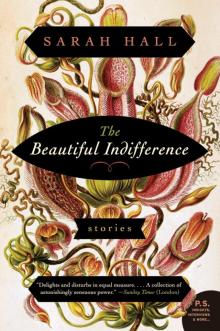 The Beautiful Indifference
The Beautiful Indifference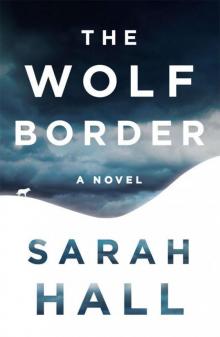 The Wolf Border
The Wolf Border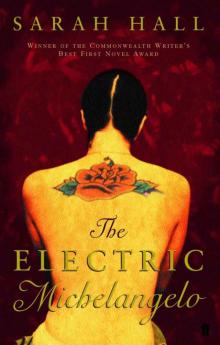 The Electric Michelangelo
The Electric Michelangelo